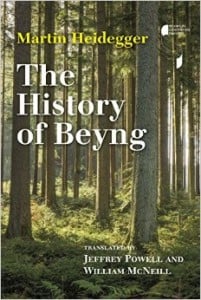Damon Linker is a senior correspondent at TheWeek.com and a consulting editor at the University of Pennsylvania Press. In recent years, he has taught critical writing at Penn and worked as a senior editor at Newsweek/The Daily Beast. Until December 2014 he was a contributing editor at The New Republic. Linker is the author of The Theocons: Secular America Under Siege and The Religious Test: Why We Must Question the Beliefs of Our Leaders. His essays and reviews have appeared in The New York Times, The Washington Post, The Wall Street Journal, and other leading publications. He has edited First Things magazine, served as a speechwriter for New York’s Mayor Rudolph W. Giuliani, and taught political philosophy at Brigham Young University. Linker studied history, philosophy, and writing at Ithaca College, graduating with a BA in 1991. He went on to earn an MA in history from New York University and a Ph.D. in political science from Michigan State University. Born in New York City, Linker currently lives in suburban Philadelphia with his wife and two children.
=======================================================================
Cosmos (Artur Rosman): Your columns for The Week.com are pretty eclectic politically, philosophically, and theologically. What writers or thinkers have influenced you most?
Damon Linker: Oh, lots of them. Leo Strauss, Isaiah Berlin, the early neocons (especially Daniel Bell and Irving Kristol), and my teacher Mark Lilla. Those are probably the most decisive influences. Michael Oakeshott has been important to me at times, as has the John Rawls of Political Liberalism (as opposed to the Rawls of A Theory of Justice, whom I don’t much like at all). And then there’s Martin Heidegger.
Rosman: What aspects of Heideggerian fundamental ontology are most useful for analyzing the contemporary American political scene? Why?
Linker: Is this a trick question to get me to confess my National Socialist sympathies?
But seriously, this isn’t the best moment to reflect on what Heidegger’s thought has to teach us about politics, given that we’re currently deep into the latest in a long string of episodes devoted to evaluating Heidegger’s Nazi sympathies and anti-Semitic proclivities. I think I’ll mostly leave the details of that whole nasty and knotted business aside and simply say that I consider Heidegger to be an extra-political philosopher — to a fault. If a fox knows and cares about many things and a hedgehog knows and cares about one thing, Heidegger was a hedgehog on steroids. He cared about the question of Being to the exclusion of every other conceivable question, very much including questions wrapped up with politics. Which doesn’t mean that he was an apolitical person. On the contrary, for much of his life, but especially in the mid-1930s, he was intensely political — but in a way that was profoundly and pathetically ignorant. As with everything else in his thinking, politics was about Being. Which meant it had nothing to do with politics as it’s concretely practiced in the world — as an activity about which one might attain knowledge or wisdom, either through experiential practical wisdom or theoretical knowledge by way of reflection. So it’s foolish to turn to Heidegger for political guidance in any straightforward way.

That said, Heidegger’s thought has proved enormously fruitful for my own thinking about politics in at least one sense. By raising the question of Being so radically, and by distinguishing that ontological question from all ontic investigations (that is, investigations within discrete fields of knowledge or inquiry), Heidegger forces one to reflect on the way we divide up the world into categories, classifications, domains of experience, etc. I’ve found that to be extremely useful — attempting to identify what is distinctive about politics, as distinct from morality, and religion, and philosophy. In my view each of those domains of human thinking and action operate according to a logic of their own. In the world of human experience, they overlap, of course, in incredibly complicated ways. But they can be separated for the purpose of analysis and reflection. And when we do that, we find, I think, that the differences among these different domains are real and important — and that much confusion and foolishness in the world is a product of people applying the logic of one domain to another.
We see this all the time in discussions of American foreign policy, where moral categories are projected onto the political realm. So we think: If I personally see a person being beaten on the street and I’m heavily armed, it’s my moral duty to intervene to help the victim; if I don’t, that’s a moral failing on my part, because I’ve shirked my duty. That’s a plausible moral claim. But how about, “Qaddafi is about to kill lots of Libyan citizens in Benghazi. If the heavily armed U.S. doesn’t intervene to stop him, we will have shirked our moral duty and deserve condemnation for this failure.” That, I’d submit, is a mistake, because it treats a nation of 318 million people as if it were an individual with moral duties when such a compound entity isn’t an individual in the same sense and can’t have moral duties in the same sense. A commander in chief’s highest duty is to protect American citizens and the nation’s common good, for example, not to come to the rescue of citizens of another nation. In that sense, our leaders are morally required to be selfish in a way that would be morally questionable at the individual level (where my ego or consciousness is in an analogous executive role).
This is one example of how the logic of politics points in a different direction than the logic of morality. In my view, we make a lot of mistakes by failing adequately to distinguish between them. The same holds for the difference between political or moral action and philosophical contemplation — and among all of them and divine revelation. Now I’m sounding like a Straussian, I guess. But Strauss was of course decisively influenced by Heidegger, so it all comes around.













